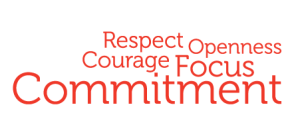 Agile in 5 Quotes
Agile in 5 Quotes
- “Concentrate all your thoughts upon the work at hand. The sun’s rays do not burn until brought to a focus.” – Alexander Graham Bell
- “Fortes fortuna adiuvat – fortune favours the brave” – Latin proverb
- “It is impossible for a man to learn what he thinks he already knows.” – Epictetus
- “Do, or do not. There is no try.” – Master Yoda
- “I speak to everyone in the same way, whether he is the garbage man or the president of the university.” – Albert Einstein
At its core, Agile is a set of values, principles and culture that help teams succeed in delivering good products to customers. Agile is emergent, team-based, and situational-driven. Agile does not define specific methods or practices. There is no “Play Book.” We have to largely figure things out as we go. It’s a lot like improv.
But an Agile approach does help us create an environment where people are the most important factor, and where leadership exists at every level and teams can do their best work.
Leadership at Every Level
- Initiative: We take action without explicit direction to improve our knowledge, prepare for our sprints, and to come up with solutions to problems. With each member of the team taking initiative, the leverage is immense. We are motivated individuals. Given the right environment and support we get the job done.
- Innovation: We are always looking at new ways of doing the same thing . It also means knowing which areas are “above the waterline” and appropriate to innovation, having the courage to change, as well as tolerate failures.
- Intimate Technical Knowledge and Excellence: Our software platforms can get fairly complex. we take ownership for learning our area of responsibility and the interrelationships of our systems with all the others. So we can make decisions based on sound reasons, not hope. (Although sometimes we do push and prey…)
- Courage: As individuals and teams, we choose to do the right thing, even if it may be uncomfortable, or difficult. It also means not just doing or saying what peers, or superiors want to see or hear. And it means admitting mistakes, even if ugly. Welcome changing requirements, even late in development.
- Commitment: Commitment means we are present when we come to work. We give it our best. We choose to be here. Our goal is to ship.Working software is the primary measure of progress. (See Say Mean Do.)
- Continuous Improvement: We continually seek ways to improve our process and ourselves. (See Retrospectives)
- Integrity: We tell the truth to each other and to ourselves. It means we have a grounded base of reality and see things as they are, not as we want them to be. We participate fully allowing improvements to be based on facts.
- Empowerment We encourage everyone to take the action they think is best and support them if they make mistakes. We delegate, explaining what we want accomplished and then allow flexibility in how it is accomplished. The best emerges from self-organizing teams.
- Teamwork: We work as a team, not undercutting each other. We back each other up in a positive way. Stakeholders, business owners, and developers work together closely. We understand that the most efficient and effective method of conveying information to and within a development team is face-to-face conversation. I love the suggestion of Ilan Goldstein, from his book “Scrum Shortcuts without Cutting Corners” that we sneak one more line into the Agile Manifesto: We Prefer Attitude over Aptitude. That is, although there is value in aptitude, we value a great attitude more.
- Openness: We exercise participative openness: freedom to speak one’s mind. Additionally, we exercise reflective openness, which leads to looking inward. We challenge our own thinking. We avoid the trap of listening to refute.
- Timeliness: We time-box everything. We strive to accomplish things faster and we work to reduce inherent delays and time lags. Our goal is to satisfy the customer through frequent delivery of valuable, working software.
- Simplicity: Occam’s razor – the philosophy that, when faced with multiple, seemingly similar alternatives, the simplest option is usually best.
And with all of the above in place, magic can happen…
